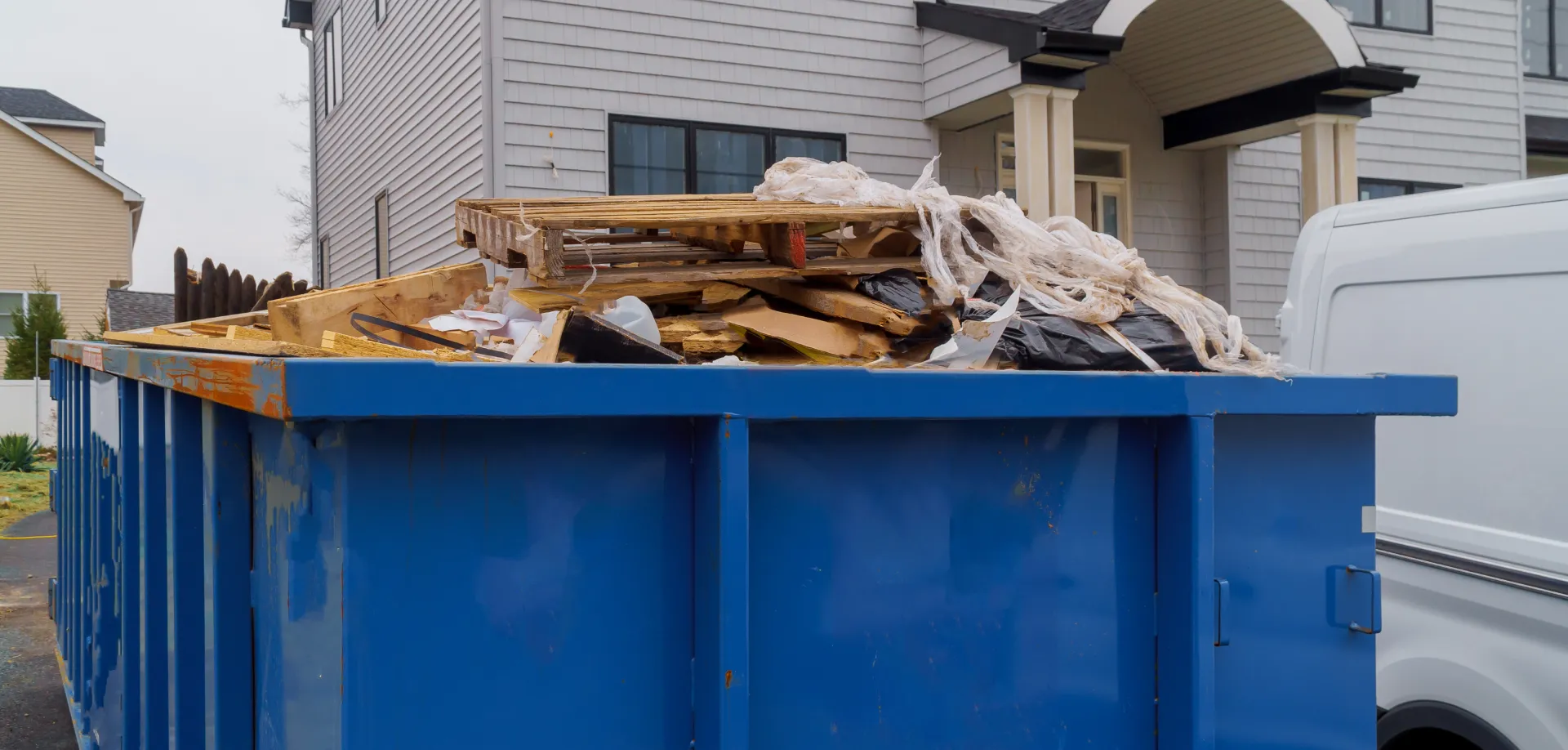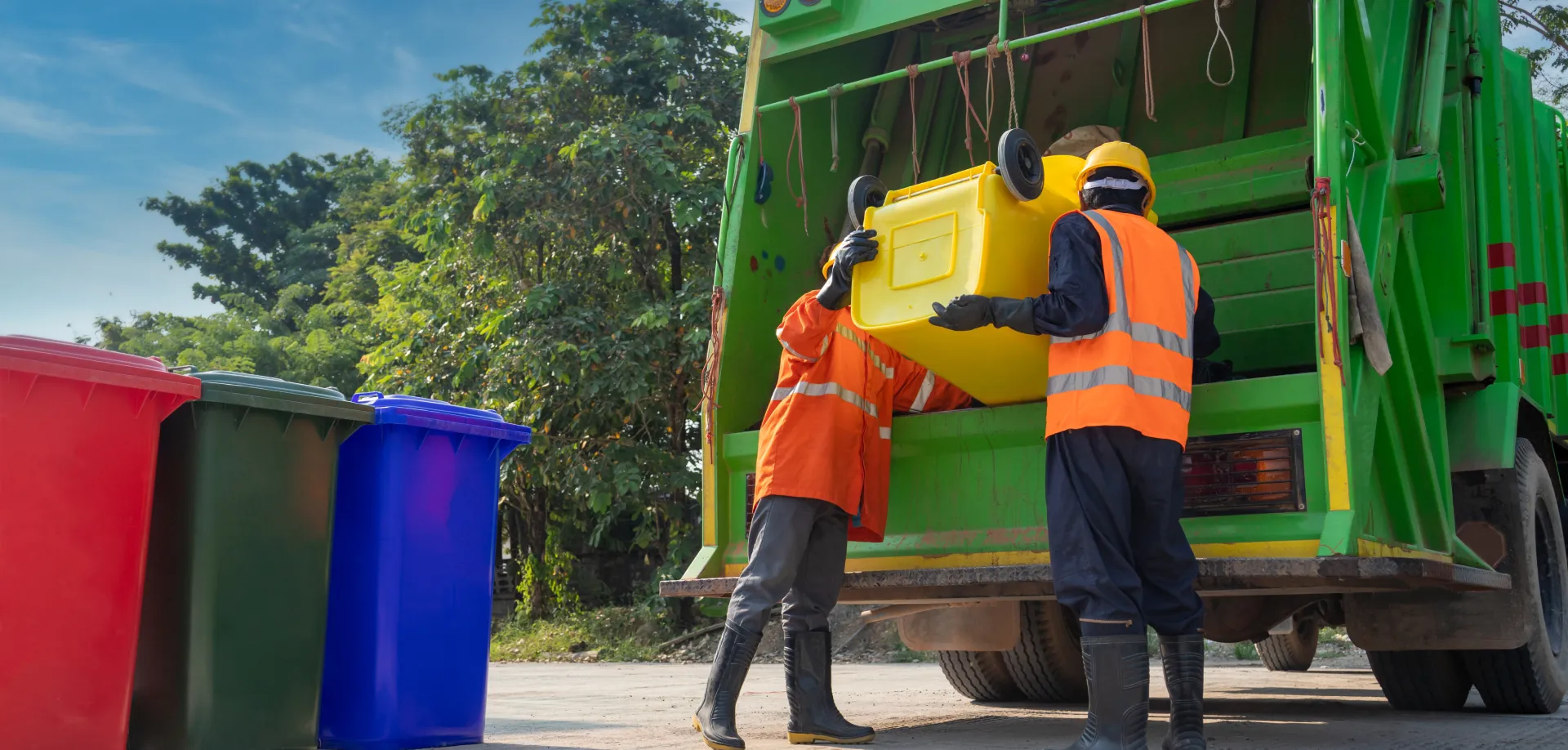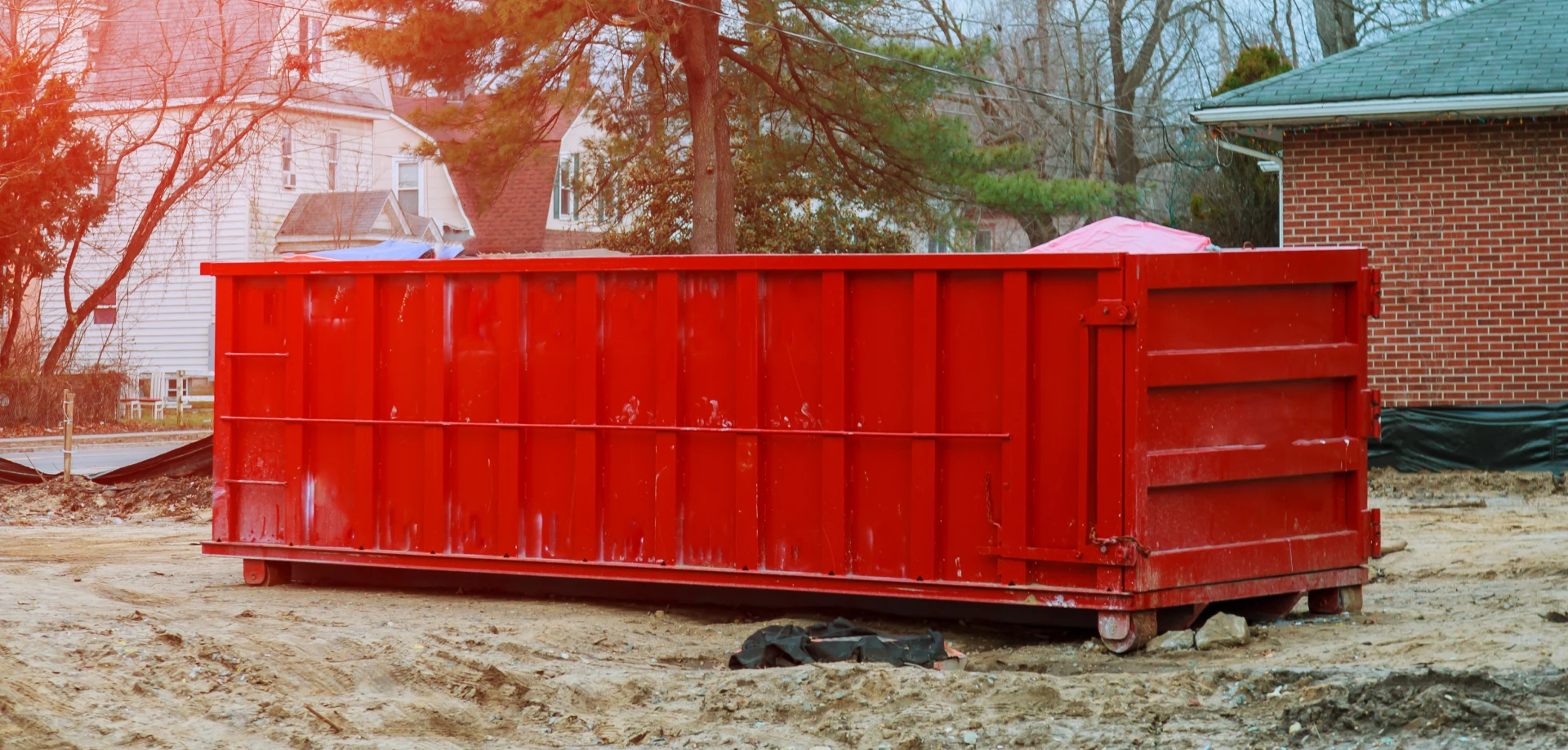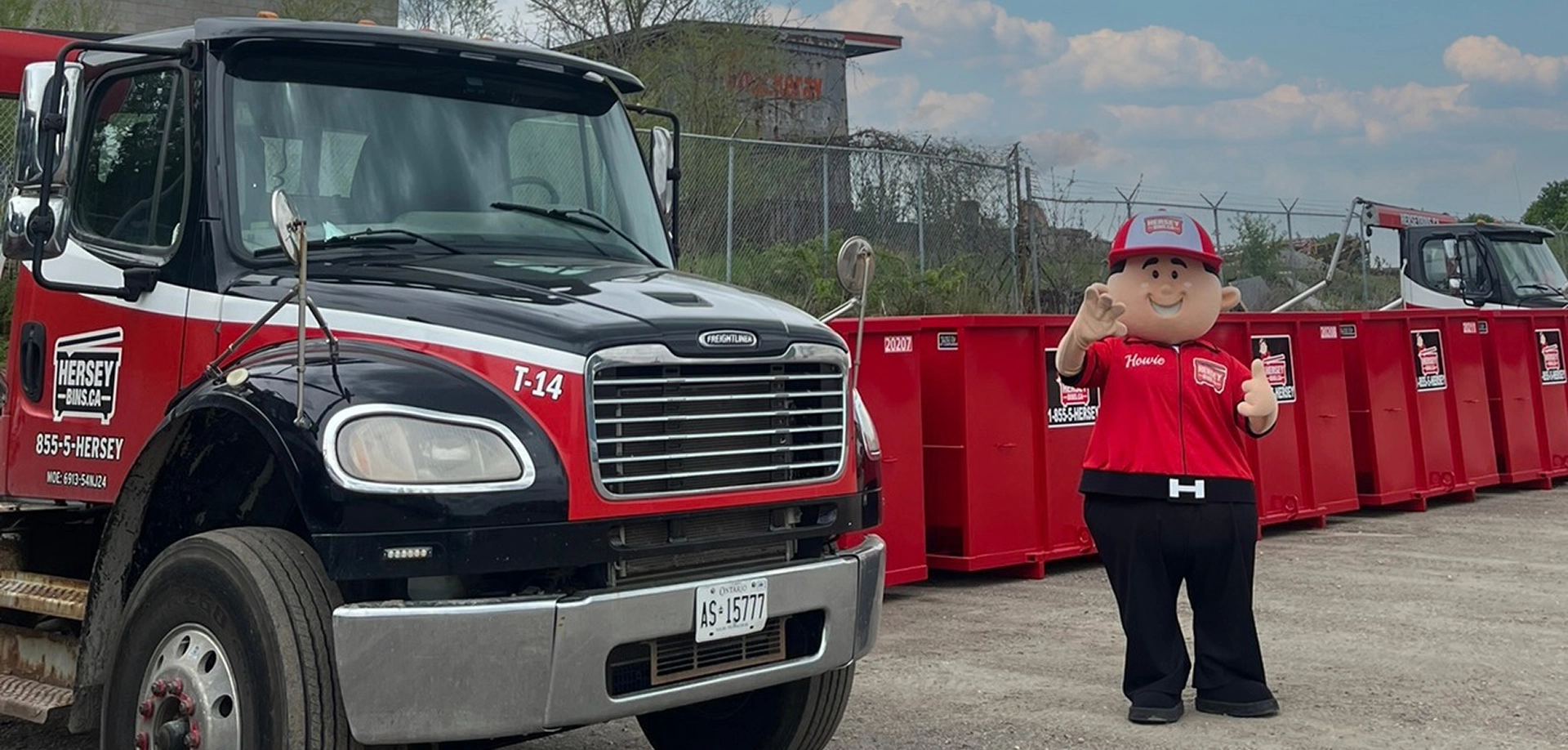Every demolition project, big or small, leaves behind a trail of debris. It might be chunks of concrete from a basement floor, old lumber from a stripped-down deck, or piles of drywall after a major renovation.
Instead of letting the mess pile up and slow your progress, the simplest solution is renting a demolition bin, a dedicated container designed to keep your site organized, safe, and ready for the next step of the project.
But a demolition bin isn’t a free-for-all. Some materials are safe to toss in, while others require special handling. Understanding the difference helps protect your budget, the environment, and everyone working on-site.
Skip the rules, and you risk unexpected fees, rejected loads, or worse, serious safety hazards.
In this guide, we’ll walk you through:
- The safe and approved demolition waste you can throw in your bin
- The hazardous or prohibited items that don’t belong there
- Best practices for sorting your construction waste disposal to maximize recycling
- How Hersey Bins’ demolition services make the process smoother, safer, and greener
Whether you’re a homeowner undertaking renovations in Kitchener or a contractor overseeing a commercial demolition in Waterloo or Cambridge, this guide provides the expertise to handle demolition waste responsibly and efficiently.
What You Can Throw In: Safe and Approved Demolition Waste
One of the biggest advantages of renting a demolition bin is convenience. These bins are designed to handle the heavy-duty debris that piles up during construction, renovation, or demolition projects.
Here’s what you can safely toss in:
1. Concrete, Bricks, and Asphalt
- Heavy demolition debris, such as driveways, sidewalks, or walls.
- Concrete and asphalt are not just disposable; they’re recyclable. Crushed concrete, for example, can be reused as gravel or road base.
2. Wood and Lumber
- Includes framing, flooring, and decking materials.
- Untreated wood is particularly valuable for recycling or repurposing.
3. Metals
- Think steel beams, aluminum siding, copper piping, or wiring.
- Metals can often be separated and recycled, reducing landfill waste while lowering your disposal costs.
4. Drywall, Insulation, and Non-Hazardous Building Materials
- Standard materials removed during renovations, such as drywall sheets or fiberglass insulation, can be disposed of in most demolition bins.
- These materials are often processed and recycled into new building products.
5. General Construction Debris
- Includes packaging, broken tiles, shingles, and other non-hazardous items commonly found on job sites.
Whether you are a homeowner engaged in a bathroom renovation or a contractor managing a substantial site cleanup, Hersey Bins provides an optimal solution for the disposal of your materials.
Hersey Bins’ Commitment to Recycling
At Hersey Bins, we proudly stand behind our “We Recycle” commitment. By sorting and diverting recyclables like metal and wood from landfills, we help reduce environmental impact and support sustainable building practices.
Expert Tip: For large volumes of waste, such as in commercial demolition projects, opt for bigger bins like our 20-yard or 40-yard demolition bin rentals to ensure efficient and cost-effective construction waste disposal.
Remember: Acceptable items can vary slightly depending on local regulations in areas like Waterloo, Cambridge, or Guelph. Always check with your provider before loading up your bin.
What You Can’t Throw In: Avoiding Risks and Fines
It might be tempting to treat your demolition bin like a catch-all for every scrap, but there are important restrictions. Certain materials pose safety hazards, environmental risks, or legal issues if improperly disposed of.
1. Hazardous Waste
- Examples: Paints, solvents, asbestos, pesticides.
- These substances are highly regulated and require special disposal methods.
2. Chemicals and Liquids
- Includes motor oils, antifreeze, propane tanks, or cleaning chemicals.
- Liquids can seep into the soil or groundwater, causing contamination.
3. Electronics and Appliances
- Items like fridges, TVs, and computers contain components that need special handling.
- Many municipalities, including Waterloo and Cambridge, offer dedicated e-waste collection programs.
4. Tires, Medical Waste, or Flammable Materials
- Tires often require separate recycling services.
- Medical waste poses biohazard risks.
- Flammables such as fuel containers can cause fires or explosions.
5. Organic Waste
- Food waste, yard clippings, or other organic material don’t belong in a demolition bin unless specifically allowed. Opt for a clean fill bin for materials like this.
Why These Are Prohibited
Certain materials are restricted from demolition bins to protect people, the environment, and your budget.
- Safety risks: Items like propane tanks, solvents, or other flammable materials can ignite under the wrong conditions, putting workers and properties at risk. Even sealed containers may leak or explode once buried under the heavy weight of other demolition debris.
- Environmental damage: Hazardous substances such as oils, paints, and asbestos can seep into the ground or wash into waterways if they’re not handled properly. Once contamination occurs, it can harm wildlife, compromise drinking water, and take years to remediate.
- Legal penalties: Local governments strictly regulate how demolition and construction waste is disposed of. Breaking the rules can result in rejected loads at disposal sites, additional cleanup requirements, and significant fines for both homeowners and contractors.
Common Mistakes
Mixing materials
One of the most frequent missteps people make is mixing prohibited materials with approved demolition waste.
It often happens by accident, a paint can tucked in with drywall, an old battery thrown in with scrap metal, or a microwave slipped in with broken tiles.
At first glance, these items don’t seem like a big deal. After all, they’re small compared to the piles of concrete, wood, and lumber going into the bin.
The problem is that disposal sites scrutinize loads, and even a single container of hazardous waste can trigger a rejection. When that happens, the bin has to be set aside, sorted, and reloaded correctly.
The costs for this extra handling almost always fall back on the customer, and they can add up quickly.
Overfilling Bins
Another common mistake is overfilling bins. People often try to squeeze in “just one more load” by piling materials above the rim.
Not only is this unsafe for transport, but it can also result in the bin not being picked up until the excess is removed.
Ignorance or Misunderstanding of Rules
Contractors sometimes run into issues when multiple crews are working on-site. Without clear instructions or signage, it’s easy for someone to toss prohibited items into the nearest bin to get them out of the way.
The result? A contaminated load that jeopardizes the whole project’s waste management plan.
For homeowners, the mistake is often rooted in uncertainty. Many people are unaware that items such as fluorescent bulbs, old propane tanks, or leftover cleaning chemicals are classified as hazardous.
Without guidance, they end up in the bin, creating complications down the line.
These mistakes often transform what should be a straightforward demolition cleanup into a logistical and financial headache. The good news is that they’re easy to avoid with a bit of planning and support from a reliable provider.
Hersey Bins’ Advantage
At Hersey Bins, we provide clear guidance on what can and can’t go inside from the very start. Our team helps customers avoid costly errors, ensures compliance with local rules, and offers alternatives for dealing with restricted items.
By working with us, you can be confident your demolition project is efficient, safe, and fully compliant with municipal standards.
As a fully licensed provider, we help you identify what’s not allowed and provide guidance during the “Pick the Bin Size for You” step. Our demolition services are built on responsibility, ensuring your project avoids delays or fines.
Best Practices for Sorting: Maximize Recycling and Minimize Landfill Impact
Tossing everything into one bin may feel efficient in the moment, but strategic sorting can save you money, reduce waste, and keep your project eco-friendly.
Step-by-Step Best Practices
- Sort on Site
- Create dedicated piles for wood, metals, and concrete.
- This makes recycling easier once the bin is picked up.
- Use Multiple Bins or Container Options
- Hersey Bins offers flexible rental solutions and sizes for every job. If you have questions, ask our team!
- Label and Organize
- If you’re running a busy job site, clear signage and separation areas speed up the loading process and reduce mistakes.
Benefits of Sorting
Sorting demolition waste might feel like an extra step, but it pays off in several important ways:
- Lower costs: Many disposal sites charge reduced tipping fees for recyclable materials like concrete, wood, and metal. By separating these items, you can minimize disposal expenses and keep your project budget under control. For larger commercial demolition projects, this can mean significant savings over the course of a job.
- Cleaner sites: A job site that’s sorted and organized is far safer for everyone working there. Instead of stepping over mixed piles of debris, crews know exactly where to place specific materials. This reduces clutter, minimizes tripping hazards, and speeds up the loading process when it’s time to fill the bin.
- Sustainability: Every piece of concrete, lumber, or scrap metal that’s recycled is one less item sent to the landfill. Sorting supports a greener approach to construction waste disposal, helps conserve resources, and contributes to a more sustainable community. It’s a small step that makes a significant impact.
Sorting Challenges and Solutions
Sorting does come with challenges, but they’re manageable with the right approach:
- Weather issues: Rain or snow can make piles of wood or cardboard soggy and harder to handle. The simple solution is to keep recyclables covered with tarps or stored in designated bins to protect them from the elements.
- Extended timelines: Some projects take longer than expected, especially if you’re carefully separating materials. That’s why Hersey Bins offers flexible rental extensions and even helps with waste sorting to keep your project on track.
By planning ahead and working with a provider like Hersey Bins, you can turn sorting from a chore into a cost-saving, eco-friendly strategy that benefits both your project and the environment.
Expert Tip: Integrate recycling into your demolition plan from the start. Hersey Bins not only provides the bins but also sweeps the area post-pickup, leaving your site safe, clean, and compliant.
How Hersey Bins Supports Your Demolition Project
Disposing of demolition waste doesn’t have to be complicated. At Hersey Bins, we’ve designed our process to be simple, efficient, and environmentally conscious.
Our Step-by-Step Process
- Select the Right Bin Size
With our expert staff, you’ll find the perfect fit, such as 15-yard bins for smaller residential projects or 40-yard bins for commercial demolition. - Same-Day Delivery
We place bins on wood to protect your property from damage. - Load at Your Pace
No rushing. You fill the bin as your project progresses. - Pickup and Cleanup
We collect the bin promptly and sweep up, ensuring your site is left clean and hazard-free.
Why Choose Hersey Bins?
- Fast, friendly service you can rely on.
- Fully licensed for safe construction waste disposal.
- Focused on recycling and reducing landfill contributions.
- Dependable in challenging conditions: whether it’s a tight driveway or a large commercial site.
From junk removal bins to construction bin rentals, we’re the partner you need for all things demolition waste.
Partner with Hersey Bins for Compliant, Efficient Demolition Services
Managing demolition waste responsibly is essential for ensuring that your project is safe, compliant, and environmentally sustainable.
With Hersey Bins, you get more than just a bin. You get a partner in construction waste disposal, a team that delivers on time, provides guidance on what’s allowed, and upholds strong recycling commitments.
Whether you’re a homeowner managing a minor renovation or a contractor handling commercial demolition, trust Hersey Bins to keep your project efficient, compliant, and eco-friendly.
Are you ready to book your demolition bin?
Contact us now to request a quote or book online to receive your bin within 24 hours of booking.






